Aristide on Forced Exile
Former Haitian President Jean-Bertrand Aristide is still the national leader of Fanmi Lavalas – one of Haiti’s most popular political parties. A former priest and proponent of liberation theology, he was Haiti’s first democratically elected president in 1990 before he was ousted in a CIA-backed coup in September 1991. He returned to power in 1994 with the help of the Clinton administration and finished his term. He was elected again seven years later, only to be ousted in another coup in February 2004. The coup was led by former Haitian soldiers in tandem with members of the opposition. Aristide has repeatedly claimed that he was forced to resign at gunpoint by members of the U.S. Embassy. U.S. officials have claimed that he decided to resign freely following the violent uprising.
This interview was carried out by award-winning independent reporter and film-maker Nicolas Rossier in the hills of Johannesburg when Aristide was not allowed to travel outside of South Africa while he waited for his diplomatic passport to be renewed. This is an excerpt of the full interview about the 1990 elections, French colonialism, the 2004 coup d’état, forced exile and Haiti’s current political situation. This is the first in a series of interviews with former controversial heads of state. The next interview is with Nobel peace laureate and former President of South Africa, F.W. de Klerk. Nicolas Rossier lives in Brooklyn, New York.
Mr. President Aristide, thank you for speaking with me today. Can we first discuss the 2010 earthquake in Haiti ?
We lost about 300,000 people and about 39 percent of the buildings in Port-au-Prince were destroyed, including fifty hospitals and about 1,350 schools. They cleared only about 2 percent of the 25 million cubic meters of rubble and debris. We could not imagine that Haiti, already facing so many problems, would now face such a disaster. Close to 1.8 million victims are living in the street homeless.
Former President René Préval was highly criticized after the earthquake for being absent and for not having shown enough leadership. Do you think that’s a fair criticism ?
It was a very bad time for the government. To have leadership, yes it was necessary to be present in a time of disaster like this one, but to criticize is cynical. Most of those who were criticizing him sent soldiers to protect their own geopolitical interests, not to protect the people. They seized the airport for their own interests, instead of protecting the victims.
Can you give us your thoughts on the 2010 cholera epidemic ?
The evidence strongly suggests that this recent critical incident of cholera was imported. Those who organized the coup d’état of 2004, paving the way for the invaders now accused as having caused the recent outbreak of cholera, must also share the blame. The root causes, and what facilitated the deadly spread of the disease are structural, embedded in Haiti’s historical impoverishment, marginalization and economic exploitation. The country’s once-thriving rice industry destroyed by the subsidized U.S. rice industry in the 1980’s – was in the Artibonite, the epicenter of the cholera outbreak. The near destruction of our rice industry coupled with the systematic and cruel elimination of the Haitian pigs rendered the region and the country poorer. In 2003 our government had paid the fees on an approved loan from the InterAmerican Development Bank to implement a water sanitization project in the Artibonite; that loan and four others were blocked as part of a calculated strategy by the so-called friends of Haiti to weaken our government and justify the coup d’état.
What prevents you from going back to your own country ? The Haitian Constitution does not allow political exile. You have not been convicted of anything, so what prevents you from going back ? You are a Haitian citizen and should be allowed to move freely.
In Haiti the same people are still there who organized the 2004 invasion after kidnapping and taking me in Africa. There is a kind of neo-colonial occupation of 8,900 UN soldiers with 4,400 policemen spending, more or less, 51 million U.S. dollars a month in a country where 70 percent of the population lives with less than a dollar a day. It’s a paradise for the occupiers. First we had the colonization of Haiti and now we have a kind of neo-colonial occupation of Haiti. They don’t want me back because they still want to occupy Haiti.
Is it true that you tried to go to Cuba for an urgent eye surgery and you were not allowed to go ?
Allow me to smile because when you look at this, you smile based on the contradiction. They pretend that they fear me when I am part of the solution, based on what the majority of the people in Haiti still continue to say. So if you want to solve the problem, open the door for my return. Before the coup, I was calling for dialogue to have inclusion, not exclusion – to have cohesion, not an explosion of the social structure. The opposition, with foreign backers, decided to opt for a coup and the result is that things went from bad to worse.
You have said that you do not intend to become involved in politics, but rather return as a citizen. Is that your vision ?
Yes, and I said it because this is what I was doing before being elected in 1990. I was teaching and now I have more to offer based on my research in linguistics and neurolinguistics. I have made a humble contribution in a country where we had only 34 secondary schools when I was elected in 1990; before the 2004 coup we had built 138 public secondary schools. The earthquake destroyed most of them. Sometimes people who want to understand Haiti from a political perspective may be missing part of the picture. They also need to look at Haiti from a psychological perspective. Most of the elite suffer from psychogenic amnesia. That means it’s not organic amnesia injury, but psychological. So with this pathology there is fear and as long as we do not have that national dialogue where fear would disappear, it will remain.
What has to be done for you to be able to return to Haiti ? What do you intend to do to make that happen ? It’s been six years now. It must be very tough for you not to be able to return with your family. You must feel very homesick.
There is a Swahili proverb : “Mapenzi ni kikohozi, hayawezi kufichika” “love is like a cough that you cannot hide.” I love my people and my country, and I cannot hide it, and because of that love, I am ready to leave right now.
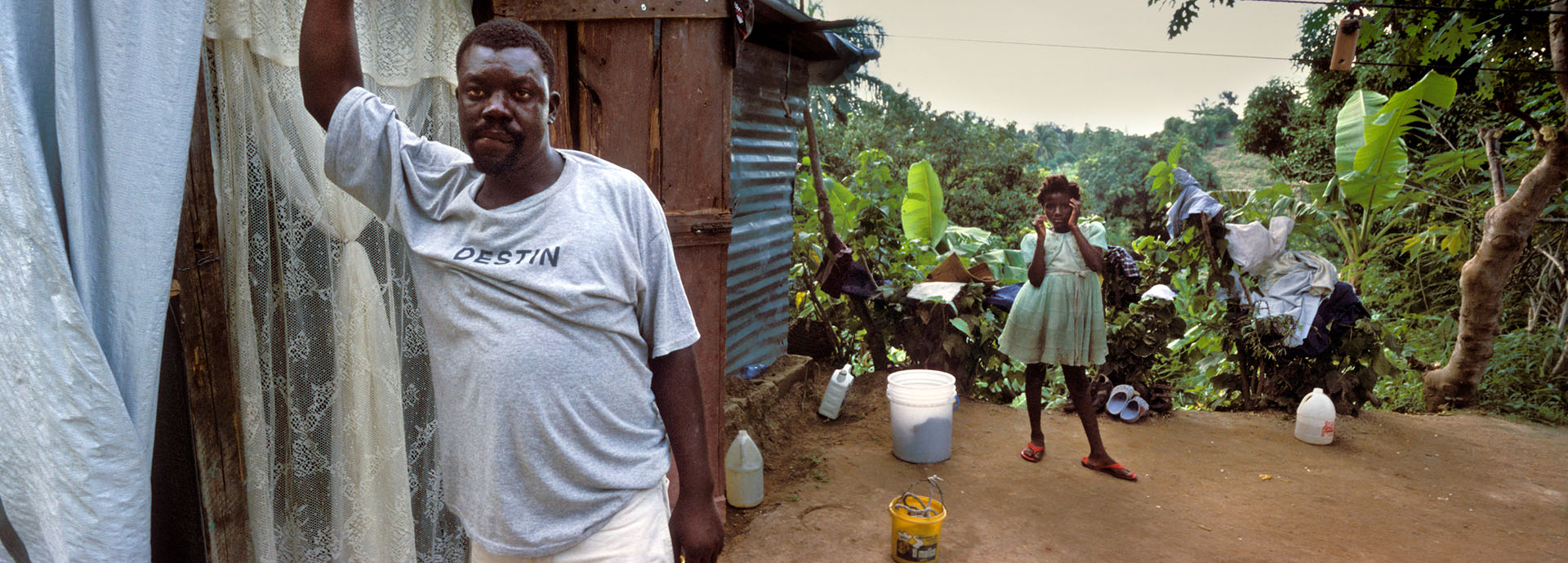
Do you think that the Haitian government is sending signals to the South African government that they are not ready ? Maybe they do not want you to return because they are concerned about security issues for you. The Haitian government may not be able to ensure your security. Some individuals who, for ideological reasons, don’t support you may go as far as to try to assassinate you. Is that part of the problem ?
In 1994, when I returned home, they said: if he comes back, the sky will fall. I was back during a very difficult time where I included members of the opposition in my government, moving our way through dialogue in order to heal the country. We did not have a judicial system, which could provide justice to all the victims at once. However slowly, through the Commission of Truth and Justice, we were paving the way to justice. Now I will not come back as a head of state, but as a citizen. If I am not afraid to be back in my country, how could those who wanted to kill me, who plotted to have the coup in 2004, be the first to care about my security ? They are hiding or trying to hide themselves.
Are they afraid of your political influence – afraid that you can affect change ?
Yes, and I will encourage those who want to be logical not to fear the people, because when they say they fear me, basically it’s not me. It’s the people. They fear the votes of the people and that fear is psychologi-
cally linked to a kind of social pathology. It’s an apartheid society because racism can be behind these motivations. We need a society rooted in equality. We are all equal – rich and poor – and we need a society where the people enjoy their equal rights. Once you speak this way, it becomes a good reason for you to be pushed out of the country or to be kidnapped as I was. There is no way out without dialogue and mutual respect.
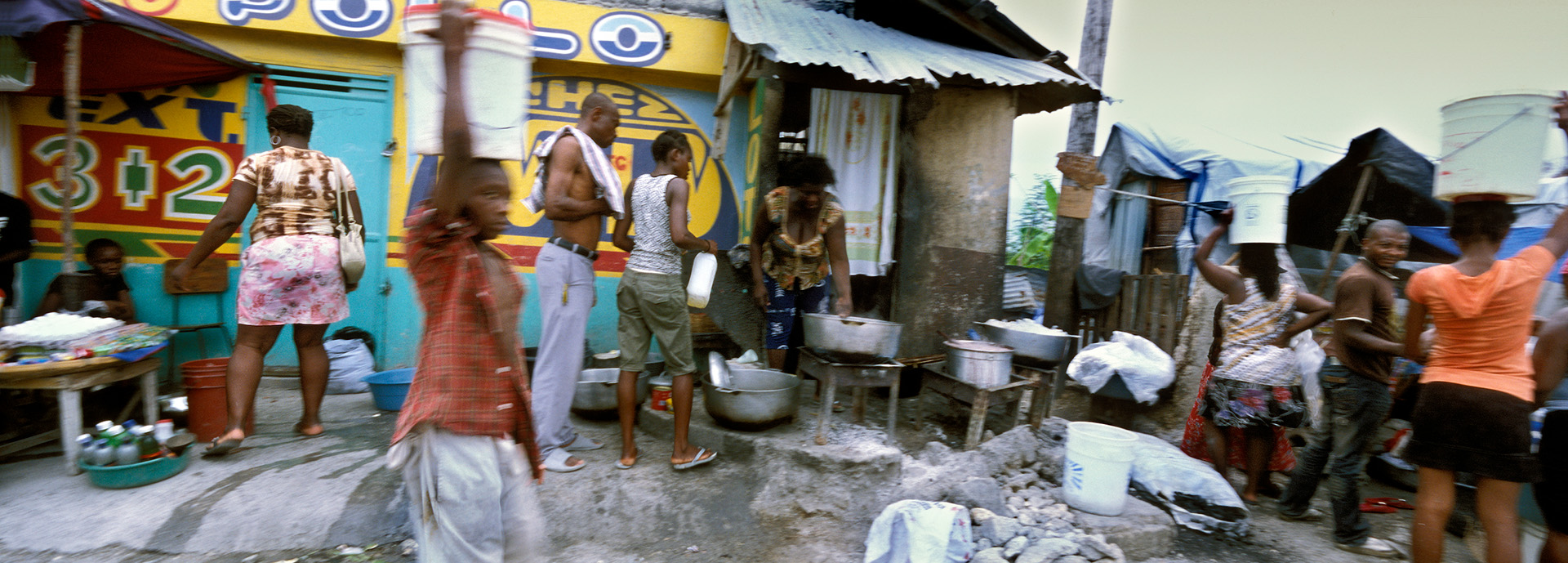
In your view, what is the last element missing for you to go back ? You said there was one more thing they could do for you do go back. Technically, what does that mean ?
I would say that the Haitian government, by being reasonable, would stop violating the constitution and say clearly that the people voted for the return as well. The constitution wants us to respect the rights of citizens, so we don’t accept exile. That would be the first step. If other forces would oppose my return, they would come clear and oppose it, but as long as we don’t start with a decision from the Haitian government, it makes things more difficult.
So the first gesture has to come from the Haitian government ?
Yes.
And they could make this happen by telling the U.S. State Department you should be allowed to come back, and should come back.
They would not have to tell the State Department.
So it’s not a political decision in Washington ? It’s between the Haitian government and the South African government ?
I don’t have a passport because it’s expired. I have the right to a diplomatic passport. By sending me a normal diplomatic passport there would be a clear signal of their will to respect the constitution. When I said earlier that we should not stop being a puppet government in the hands of those who pretend to be friends of Haiti, as long as we continue to play like that we are not moving from good to better or good to good, but from bad to worse.
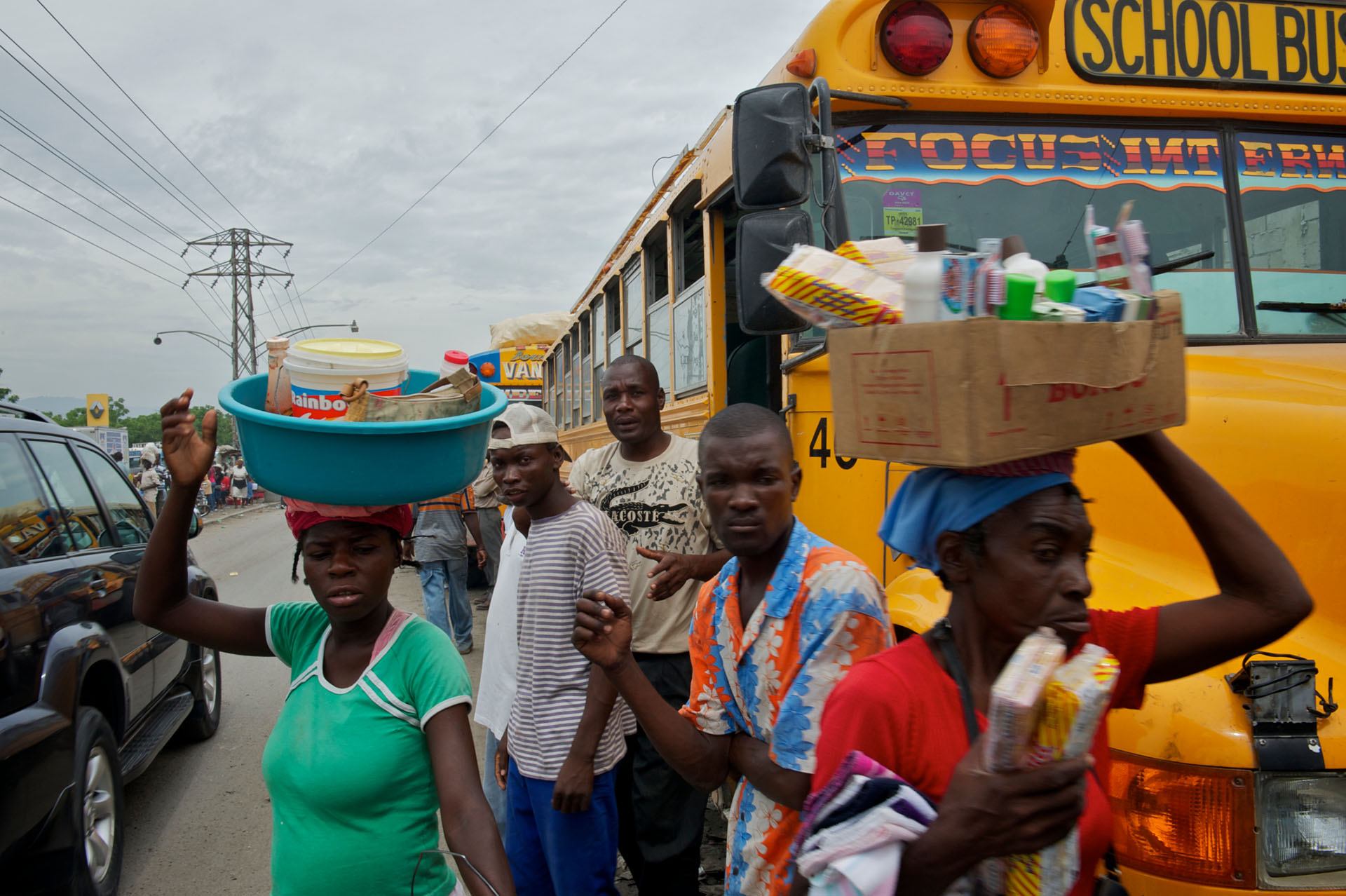
There was a lot of noise in the U.S. media about the candidacy of singer Wyclef Jean, who eventually was denied running by the CEP [Haiti’s Provisional Electoral Commission]. Any comment about the whole commotion around his candidature ?
When we say democracy we have to mean what we say. This is not the case for Haiti. They talk about democracy but they refuse to organize free and fair democratic elections. Is it because of a kind of neo-colonial occupation ? Is it because they still want exclusion and not inclusion ? Last year, we observed that they said they wanted elections, but they had a selection and not an election. Today they are moving from the same to the same. They are not planning to have free and fair democratic elections. They are planning to have a selection. They excluded the majority party, Fanmi Lavalas. It is as though the U.S. could organize an election without the Democrats. Wyclef Jean came as an artist to be a candidate and it was good for those who refuse elections because they could have a “media circus” in order to hide the real issue – the inclusion of the majority.
Looking back at the events that led to your overthrow in 2004, is there anything in hindsight that you wished you had not done ? Anything tactically or strategically that you wish you had done differently and that could have prevented the coup ?
When we look at the time of the 2004 coup d’état, which was a kidnapping, I was calling for dialogue and they manipulated a small minority of Haitians to play the game of moving from coup d’état to coup d’état, instead of moving to free and fair democratic elections. The first time Haiti had free and fair democratic elections was 1990 when I was elected. We wanted to move from elections to elections. In 2004, we were moving towards a real democracy and they said no. The minority in Haiti – the political and economic elite – is afraid of free and fair elections, and their foreign allies don’t want an election in Haiti. That is why they excluded Famni Lavalas. As long as they refuse to respect the right of every citizen to participate in free and fair democratic elections, they will not fix the problem.
What about the strategic mistakes you may have made such as asking France to pay reparation in 2003. In doing that, you lost a natural ally that could have stood with you before the coup and within the United Nations Security Council to protect your government. In fact, France stood with the U.S. and did not come to your rescue this time, probably because they were upset by your demand for restitution.
I don’t think this was the case. The first time I met with French President Jacques Chirac, I was in Mexico. At that time he was with Prime Minister Dominique de Villepin. I invited them to join us to celebrate freedom as a universal value. So that was an opportunity for France to realize that yes, Haiti and France can stand up together.
In 1789, France had their revolution and declared “liberty, equality, fraternity” for all people, but in the back of their minds Haitian and African slaves were not human beings. We fought hard and we got our independence. It was not a gift. It was the blood of our forefathers that was shed to gain our freedom. Despite that, we did not want to celebrate our 200 years of independence with any kind of spirit of vengeance, nor a spirit of glory to remind France of what they had done. It was an invitation to celebrate freedom as a universal value. That would not exclude the truth because the truth is they obliged Haiti to pay 90 million francs, which for us today, is more than 21 billion U.S. dollars. This is restitution, not reparation.
In 2001 in Durban, South Africa, the UN gave the Haitians and French an opportunity to address the issue of reparation. The French refused, but we asked them to let us have an opportunity to address this issue in a mutually respectful way. Today I would ask France to join Haiti to cel ebrate freedom and address this issue of $21 billion. When President Sarkozy went to Haiti after the 2010 earthquake, Haitians were not begging for cents, they were asking for the $21 billion because it is a question of dignity. We will not beg for cents. Cents will never solve the problems. After 200 years of independence, we are still living in abject poverty and misery. France must address
this issue with Haitians.
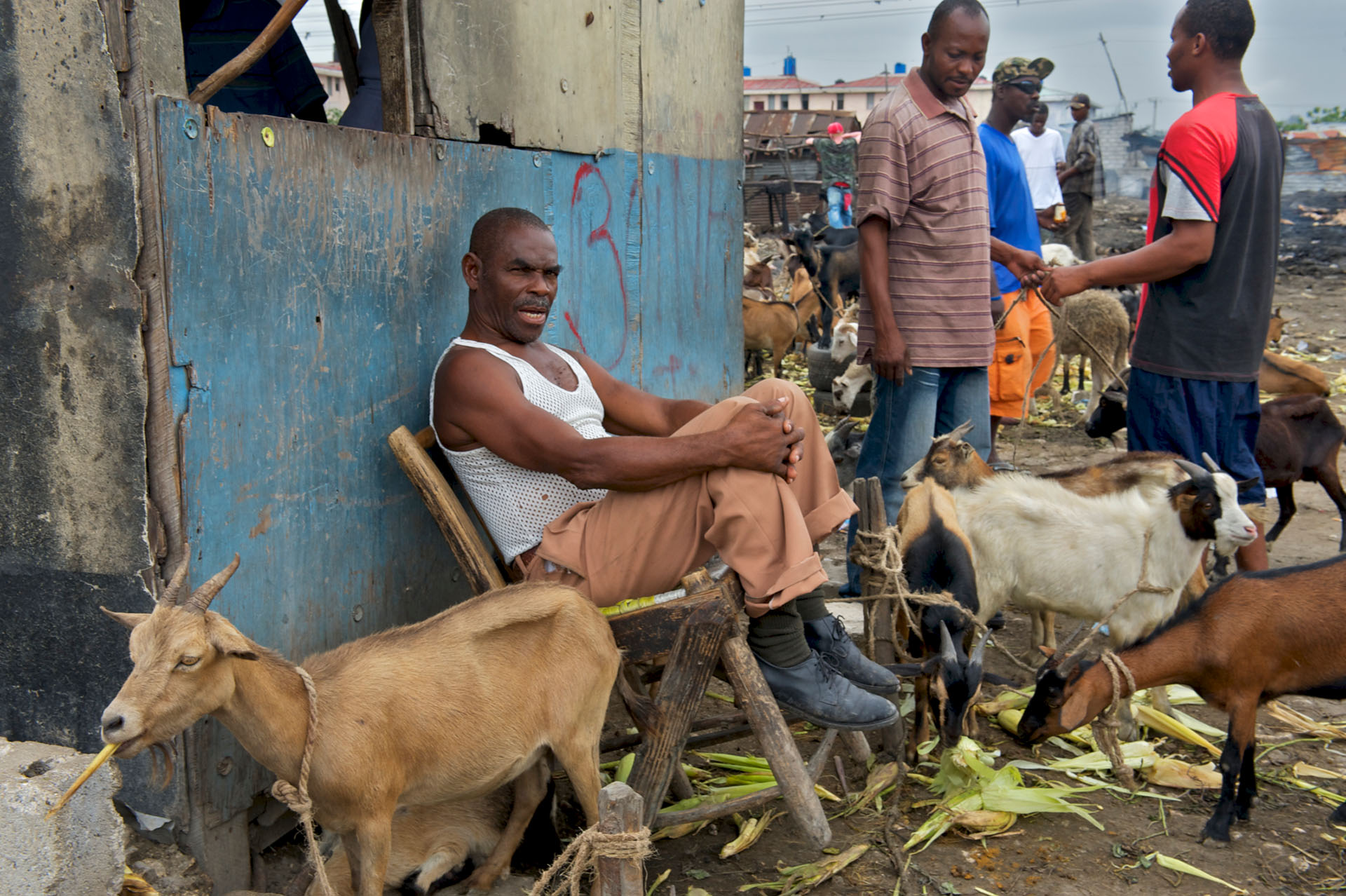
If France had asked the UN Security Council to send UN peacekeepers to maintain your government, do you think you would not have been pushed out of power ?
There are diplomatic words to cover everything. At the time, the burning issue was Iraq. France opposed the U.S. on this issue and that was a golden opportunity for them to sacrifice Haiti in terms of leading and participating in a coup or in the kidnapping of a president.
But the hidden reason was that France did not want you to annoy them anymore with this request. 2003 was the first time, at least publicly and officially, that a Haitian President made such a request.
Former colonists defend their interests, not their friends. We could compare what is going on today, post-earthquake, to what was going on in 2004, in order to find out if France is really helping Haiti and if they would change their policy or not. They would not change their policy because they have enough in front of them, in terms of the disaster, to address the issue of 21 billion dollars now. Maybe one day the French government will take up the issue.
As a matter of fact, as soon as Gérard Latortue was placed as Prime Minister after your removal, the Haitian government dropped the issue right away.
That did not kill the issue. If we look at the history of Haiti before 2004, no one dared to address the issue since we were moving from misery to poverty with dignity. When we addressed it they did not want to answer – but that does not kill reparation. It will remain a reality. What happened with Italy and Libya? Italy addressed reparation and that was good for both countries just as we must address with France the issue of restitution.
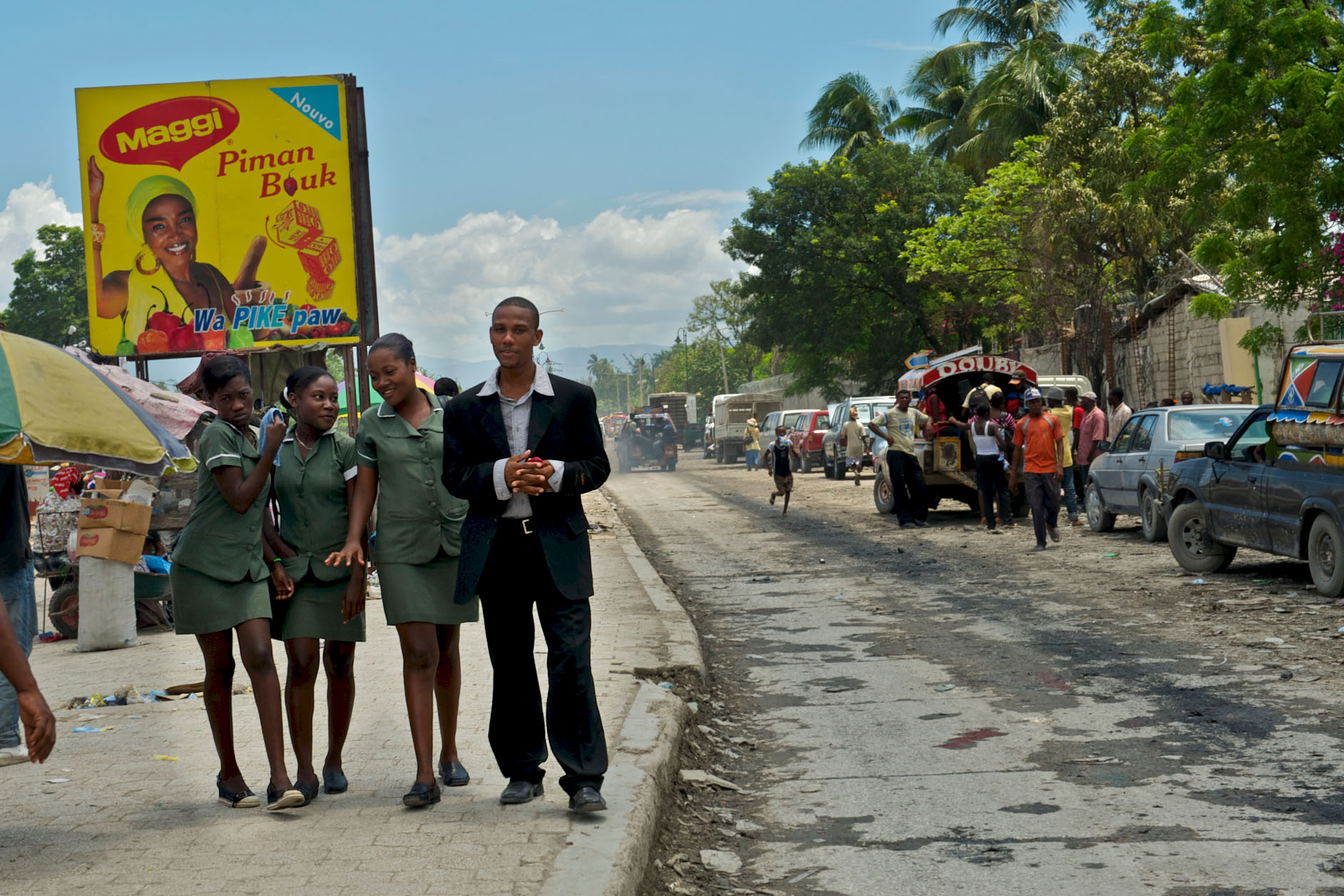
An article by Jacqueline Charles in the Miami Herald quoted a historian as saying: “Lavalas was never a party. It was a movement, which is now in deep crisis and divided among distinct factions led by some of its old barons. They all want the Lavalas vote without appealing to Aristide. So, yes, Lavalas as we knew it is dying a slow death.” He was commenting on the current debate around the elections in Haiti. What do you think of what he said?
Some people pretend they are experts on Haiti, but they often act like people suffering from social amnesia. When you take a group of mice and you put them in a lab, if these mice don’t have the capacity of producing oxytocin in the brain, they are not able to recognize other mice. These people suffer from social amnesia. They are unable to recognize Haitians as human beings. The majority of Haitians declared “Lavalas is our political party.” That is what the majority said and they have their constitution, so how can someone pretend that it’s not?
So there is this amnesia because most commentators admit that Préval won in 2006 thanks to the Lavalas base. Many in Haiti want to use Lavalas as well to win, but nobody wants the Lavalas party to win or mention your name in the process. How do you feel about this contradiction?
What South Africa had before 1994 is what Haiti has today. The structure of apartheid is still rooted in the Haitian society. When you have apartheid, you don’t see those behind the walls. The people exist, but they are not included. They want to use them and not respect their will.
When they talk about Lavalas they fear them, because if there is a fair election the people will defeat them. So they have to exclude the Lavalas party or the majority, in order to make sure that they will select what they want to select. So this is the kind of apartheid that they have in Haiti. They will hate you and they may try to kill you.
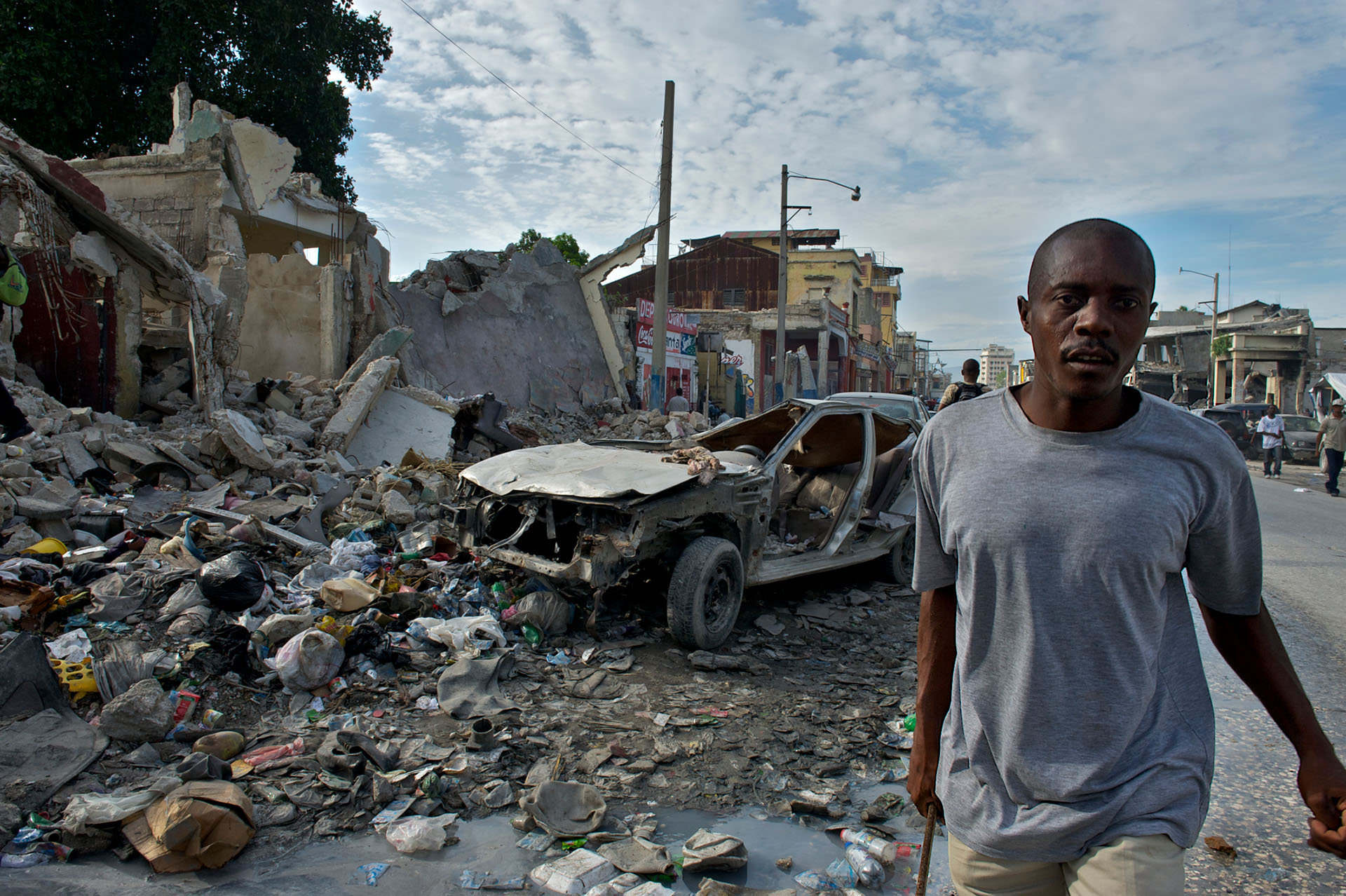
We’ve seen people like your former friend and later foe Evans Paul asking for your return. They are using you to get support from the Lavalas base. Others want to appeal to Lavalas but are scared to mention you. What do think of this current reality in Haiti?
The day I would think that I can use the Haitians they would start to distance themselves from me and deny me. They would be right to do that, because no one, as a politician, should pretend the people are dumb enough to be used for votes. In 1990, when I was elected president, people were working in sweatshops for nine cents an hour. I managed to raise the minimum wage and that was enough to have a coup. It happened in Honduras in 2009 because part of the game is: don’t raise the minimum wage, keep people working as slaves.
Today, the Haitian people remember what we were trying to do together. They continue to ask for my return six years after my kidnapping. The politicians should focus not on me, but rather on the people and their rights – the right to eat, the right to go to school, the right for healthcare, and the right to participate in a government. In 2006 they elected someone [René Préval] who betrayed them.
You are still the national leader of Lavalas. Don’t you think that it would be a better idea to transfer the leadership to someone in Haiti? Would that not be a better longterm strategy, rather than hanging on to the title of party leader? After all, that’s one of the pretexts used to not allow Lavalas to participate in the past elections and the future of Haiti as well?
If we respect the will of the people, then we must pay attention to what they are saying. I am here, but they are making the decisions. I am not the one preventing them from moving on with a congress and having another leader. As a matter of fact, I am not acting as national leader outside of Haiti, not at all. I don’t pretend to be able to nor do I want to do that. They have said that it is a question of principle. First, they want my return, and then they can organize a congress to elect a new leader and move ahead. What is behind the national picture is a logical fallacy. They pretend they have to exclude Lavalas to solve the problem. They will not solve the problem without the majority of the people. They have to include Lavalas in a free and fair democratic election with my return, before my return or after my return.
So practically, if you were to say today that you would endorse Maryse Narcisse as the national leader they would accept Lavalas candidates?
In 2009 I received a letter from the Provisional Electoral Council (CEP) – a council selected by the president which is why they do what he wants. Excluding Lavalas was the implementation of the Haitian government’s will. I received a letter from them inviting me to a meeting and I said to myself: “Oh, this is good. I am ready. I will go.” Then, they said in the letter: “If you cannot come, will you send someone on your behalf?” So I said okay and I replied in a letter, which became public, asking Dr. Maryse Narcisse to represent Lavalas and to present the candidates of Lavalas based on the CEP letter I received. But they denied it because the game was to send the letter to me and assume that I would not answer. Then they could tell the Haitian people: “Look he does not want to participate in the election.”
Did they not claim it was false at some point, or that it was not your signature?
They claimed that the mandate from me should have been validated by the Haitian consulate in South Africa, when they know that there is no representative of the Haitian government in South Africa. When I was President, I had named an Ambassador to South Africa, but that ended with the coup. We cannot change the economic reality in one day, in one year, but at least we should continue to respect the right of Haitians to vote. South Africa did something which could be good for many countries: in 1994 they voted. They are moving from free and fair elections while trying to improve their economic life.
The night of the coup. At the time you said to me that you were writing a book about it.
The book has been finished since 2004. It was ready to be published and it would be published if I were allowed to do that.
Do you still remember the night of the coup – and I am sure you do because nobody is used to being awakened in the middle of the night and sent on a plane surrounded by armed people. Do you wish you had said no to Mr. Moreno, “I am not signing this letter of resignation” or “I won’t get on that plane. I will deal with the security issues in Haiti with my government”?
I would do exactly what I did and I would say exactly what I said because it was right. They were wrong, and they are still wrong.
What is known is the letter in Creole that you signed and was according to you mistranslated.
Of course it was mistranslated.
Right, but you also clearly stated that you were forced at gunpoint and that’s public knowledge.
It is.
There have been corruption accusations against you starting with filmmaker Raoul Peck and then taken over by Ms. Lucy Komisar and Ms. Mary Anastasia O’Grady of the Wall Street Journal about your personal involvement in a Teleco/IDT deal back in 2023. Can you put these accusations to rest?
They are lying. What can we expect from a mental slave but to lie for his masters? I am not surprised by these nonsensical allegations.
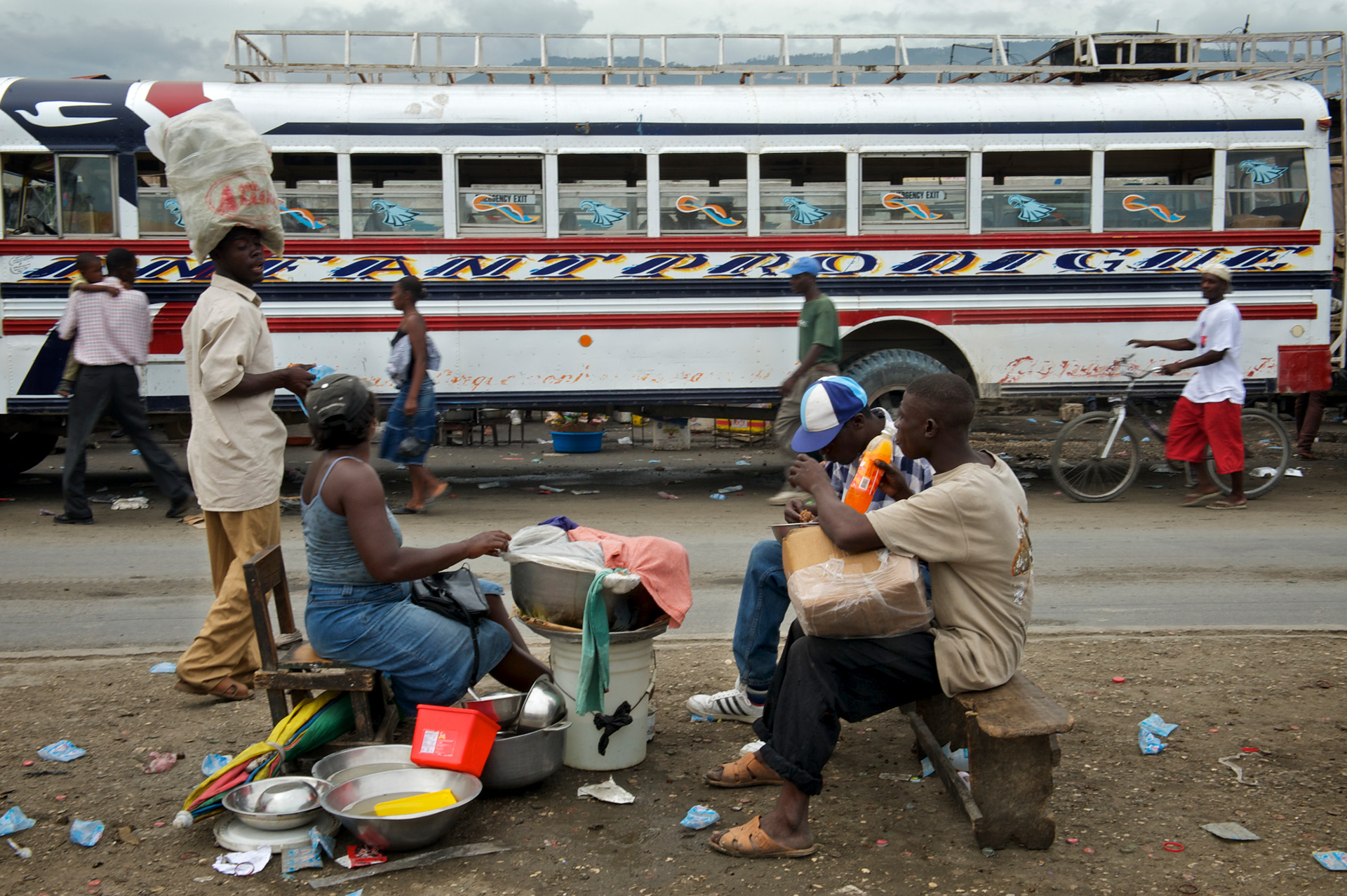
Is it possible that at some level in your government there was some corruption involving Teleco and IDT?
I never heard about things like that when I was there. If I had known, we would have done our best to stop it or to prevent it or to legally punish those who could have been involved.
Why have you not declared this publicly? Corruption happens in all governments. Haiti is not an exception. You could say that you were the head of state, but not the head of Teleco.
As I said, there are more people receiving money to lie than people receiving money to tell the truth. I don’t know how many times I have answered this question, but sometimes the journalist may have the answer but is not allowed to make it public.
Would you be in favor of creating a Haitian Truth and Reconciliation Commission, similar to what South Africa did, that would allow some of the people who have been exiled under Jean-Claude Duvalier and Raoul Cedras and your two presidencies to come back and be called to appear in that commission – and ask for forgiveness and amnesty if needed?
There is no way to move forward in Haiti without dialogue – dialogue among Haitians. Once we had an army of 7,000 soldiers controlling 40 percent of the national budget, but moving from coup d’état to coup d’état. I said no. Let’s disband the army, let’s have a police force to protect the rights of every citizen, let’s have dialogue to address our differences. There is no democracy without opposition. We have to understand one another when we oppose each other. We are not enemies. We have to address our differences in a democratic way and only then can we move ahead. We still have people calling themselves friends of Haiti coming to exploit our resources. They don’t want national dialogue. They don’t want Haitians to live peacefully with Haitians.
South Africa did it when they had the Commission of Truth and Reconciliation. People realized that they had made mistakes. We cannot pretend that Haiti will have a better future without that dialogue. In 1994, when I went back to Haiti from exile, we established a Commission for Truth and Justice and Reconciliation. I passed the documents to the next government, and I never heard about it again. Haitians never heard about it because the government wanted to move fast towards the privatization of state enterprises.
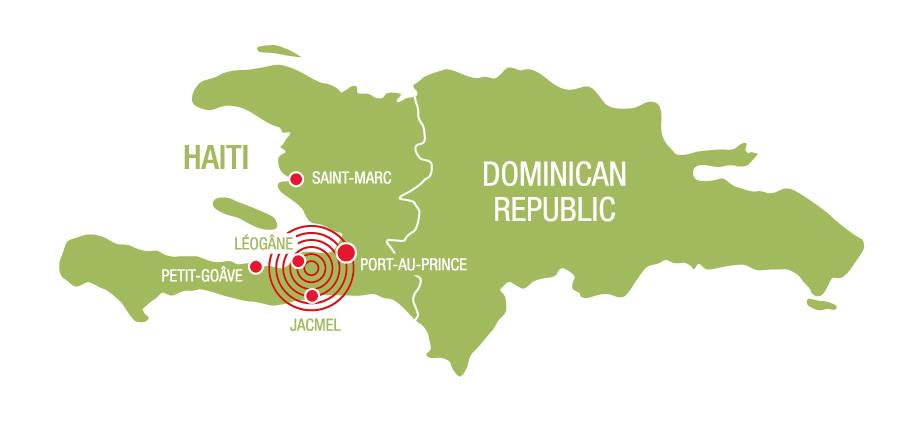
Would that mean allowing all the political exiles to come back no matter how bad they were, including people like Cedras and Duvalier.
The Commission addressed the case of these criminals and paved the way for justice and dialogue. We need to continue to address this issue of dialogue, truth and justice otherwise we will continue to behave like a puppet government or mental slaves in the hands of those who still want to exploit our resources. Haitians must start to say no. Let’s change it, but not against foreigners, not against true friends.
Do you hold a grudge today against former President René Préval for not being more forceful in trying to facilitate your return to Haiti? He owes his election thanks to the Lavalas base.
If I pay attention to what the people are saying, they describe President Préval as someone who betrayed me and it’s true. They voted for him. I did not vote, I was here, but those who elected him now realize he failed them. He played into the hands of those who are against the interests of the people.
I remember a famous progressive journalist in Geneva reviewing my film Aristide and the Endless Revolution and one of the critics he had said that I did not speak about voodoo and how it affects Haiti’s politics. What do you think of this tendency among many western journalists who try to explain voodoo as a reason for Haiti’s problems?
Fourteen years after Christopher Columbus arrived in Haiti in 1492, they had already killed three million indigenous people. Do they speak about it today? Do they know about it? One could be 15 years old and would have to pay a quarter of gold to Christopher Columbus or he would cut off your arm or feet or ears. Do they talk about it? They have problems exposing the truth. If you look at the reality of today, it is the same. Instead of focusing on what is the reality of misery, abject poverty, occupation, colonization, some prefer to find a scapegoat through voodoo. We see people invading a country, pretending to help Haiti, and the UN itself had to expel 114 soldiers for rape and child abuse. This is not an issue for people who like to talk about voodoo as if voodoo by itself could cover this reality. The same way they don’t want to face how our historical drama is linked to colonization.
Is it a racist distraction?
It is. I will respect any religion. Africans had their religion here. They went to Haiti and continued their practice. The Haitian constitution, respects the freedom of religion. So let’s address the drama, misery, poverty, exploitation, occupation, of a people without the right to vote or eat. People want to be free. They don’t have self-determination. Let’s focus on people who have no resources and are dying. After the January 12 [2010] earthquake, citizens worldwide were building solidarity with Haitians. It was great to see whites and blacks crossing barriers of color to express their solidarity.
I say thank you to all those true friends while others who call themselves true friends of Haiti preferred to send soldiers with weapons to protect their own interests. Amputations – we had them by the thousands without anesthesia. What is going on in Haiti is rooted in colonialism, neo-colonialism in that neo-liberal policy applied and imposed upon Haiti. As long as they don’t try to face the reality they may continue to use issues like voodoo to hide facts, any attempt to replace truth by racist distractions will fail.
Anything that you would like to add that you have not been able to tell?
Well … if you ask a Zulu [the largest ethnic group in southern Africa] person the way to reach somewhere while you are on the right path, that person will tell you “Ugonde ngqo ngalo mgwago” which means “go straight on your way.” That is why the Haitian people who are moving from misery to poverty with dignity should continue to move straight towards the goal of freedom. If we lose our dignity we lose everything. Based on the collective dignity rooted in our forefathers, I do believe we have to continue fighting in a peaceful way for our self-determination, and if we do that, history will pay tribute to our generation, because we are on the right path.